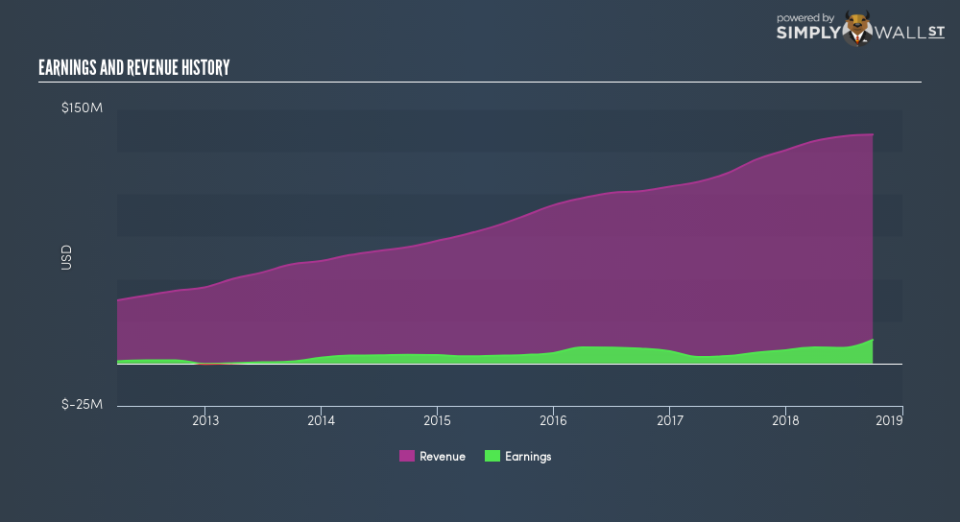Does Market Volatility Impact Whitestone REIT’s (NYSE:WSR) Share Price?

Want to participate in a short research study? Help shape the future of investing tools and you could win a $250 gift card!
If you’re interested in Whitestone REIT (NYSE:WSR), then you might want to consider its beta (a measure of share price volatility) in order to understand how the stock could impact your portfolio. Volatility is considered to be a measure of risk in modern finance theory. Investors may think of volatility as falling into two main categories. The first type is company specific volatility. Investors use diversification across uncorrelated stocks to reduce this kind of price volatility across the portfolio. The second type is the broader market volatility, which you cannot diversify away, since it arises from macroeconomic factors which directly affects all the stocks on the market.
Some stocks mimic the volatility of the market quite closely, while others demonstrate muted, exagerrated or uncorrelated price movements. Beta can be a useful tool to understand how much a stock is influenced by market risk (volatility). However, Warren Buffett said ‘volatility is far from synonymous with risk’ in his 2014 letter to investors. So, while useful, beta is not the only metric to consider. To use beta as an investor, you must first understand that the overall market has a beta of one. Any stock with a beta of greater than one is considered more volatile than the market, while those with a beta below one are either less volatile or poorly correlated with the market.
View our latest analysis for Whitestone REIT
What does WSR’s beta value mean to investors?
Given that it has a beta of 1.2, we can surmise that the Whitestone REIT share price has been fairly sensitive to market volatility (over the last 5 years). Based on this history, investors should be aware that Whitestone REIT are likely to rise strongly in times of greed, but sell off in times of fear. Many would argue that beta is useful in position sizing, but fundamental metrics such as revenue and earnings are more important overall. You can see Whitestone REIT’s revenue and earnings in the image below.
Does WSR’s size influence the expected beta?
With a market capitalisation of US$573m, Whitestone REIT is a small cap stock. However, it is big enough to catch the attention of professional investors. It is quite common to see a small-cap stock with a beta greater than one. In part, that’s because relatively few investors can influence the price of a smaller company, compared to a large company.
What this means for you:
Beta only tells us that the Whitestone REIT share price is sensitive to broader market movements. This could indicate that it is a high growth company, or is heavily influenced by sentiment because it is speculative. Alternatively, it could have operating leverage in its business model. Ultimately, beta is an interesting metric, but there’s plenty more to learn. This article aims to educate investors about beta values, but it’s well worth looking at important company-specific fundamentals such as Whitestone REIT’s financial health and performance track record. I urge you to continue your research by taking a look at the following:
Future Outlook: What are well-informed industry analysts predicting for WSR’s future growth? Take a look at our free research report of analyst consensus for WSR’s outlook.
Past Track Record: Has WSR been consistently performing well irrespective of the ups and downs in the market? Go into more detail in the past performance analysis and take a look at the free visual representations of WSR’s historicals for more clarity.
Other Interesting Stocks: It’s worth checking to see how WSR measures up against other companies on valuation. You could start with this free list of prospective options.
To help readers see past the short term volatility of the financial market, we aim to bring you a long-term focused research analysis purely driven by fundamental data. Note that our analysis does not factor in the latest price-sensitive company announcements.
The author is an independent contributor and at the time of publication had no position in the stocks mentioned. For errors that warrant correction please contact the editor at editorial-team@simplywallst.com.

 Yahoo Finance
Yahoo Finance 
